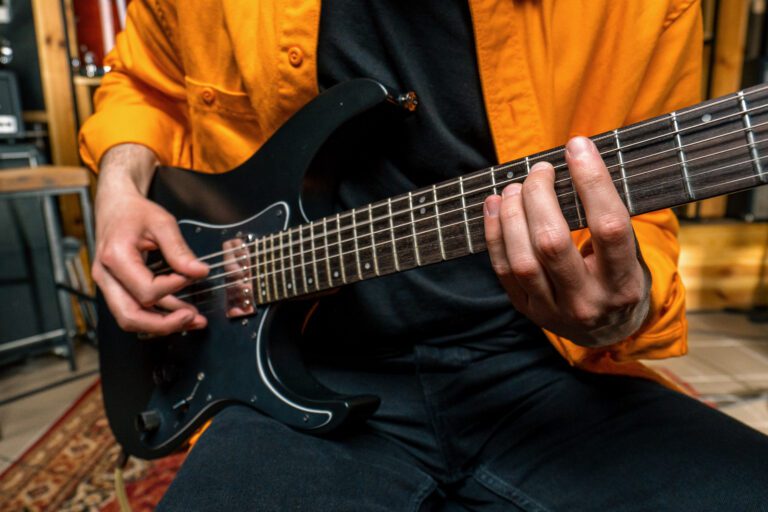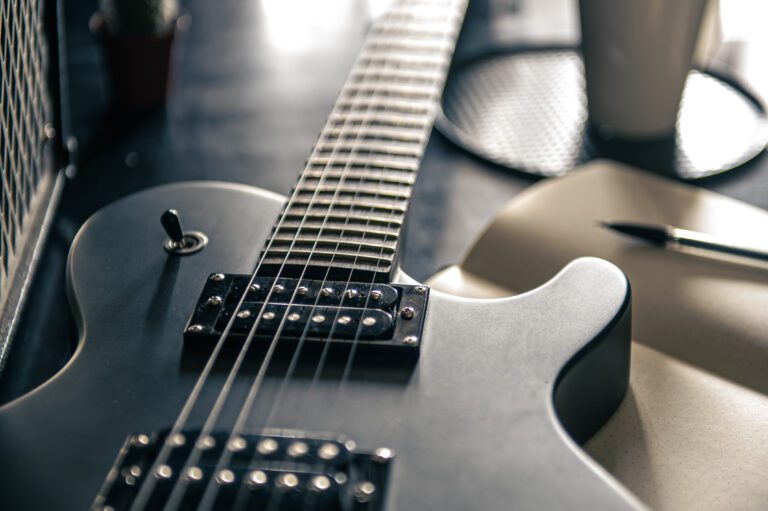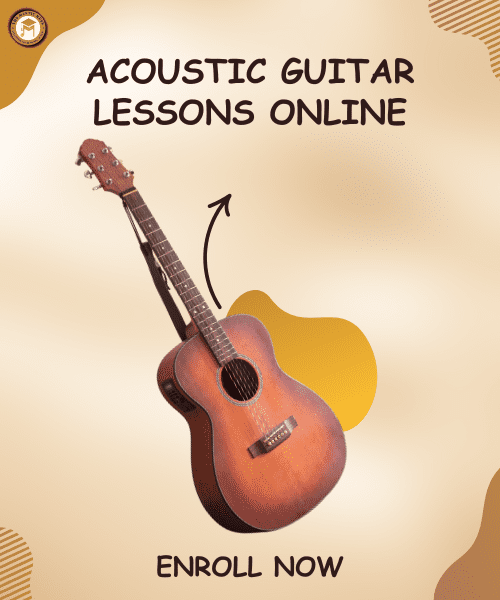Rhythm vs. Lead Guitar | Which One Should You Learn First?
Wondering whether to start with Rhythm vs. Lead Guitar? Understanding the key differences, roles, and best learning path can help you make the right decision. Rhythm guitar focuses on playing chord progressions and providing the foundation of a song, offering structure and timing that supports the overall band sound. It’s ideal for those who love strumming and want to quickly play along with songs. Lead guitar, on the other hand, involves creating melodies, solos, and improvising, allowing for more creative expression. It requires dedication to mastering techniques like bending, hammer-ons, and pull-offs. A great learning path is to start with rhythm guitar to build a strong foundation, and then gradually introduce lead techniques as you become more confident. Over time, you can switch between the two roles, just like many legendary guitarists, to create a dynamic and expressive playing style.
1. Introduction: Understanding the Two Guitar Roles
When learning guitar, one of the biggest questions beginners ask is:
🎸 Should I start with rhythm or lead guitar?
Both styles are essential for a band’s sound, but they have different roles and techniques. Whether you should start with rhythm or lead guitar depends on:
✔ Your musical goals
✔ The type of music you want to play
✔ Your technical abilities and preferences
Let’s break down both roles to help you decide which one suits you best.
2. What is Rhythm Guitar?

Rhythm guitar is the backbone of a song. It provides the harmonic foundation and keeps the groove for the band.
✅ Primary Responsibilities:
✔ Playing chords and progressions
✔ Keeping a steady rhythm
✔ Supporting the lead guitarist and vocalist
✔ Strumming or fingerpicking patterns
🔹 Examples of Rhythm Guitarists:
🎵 James Hetfield (Metallica) – Heavy power chords and tight rhythms
3. What is Lead Guitar?
Lead guitar focuses on melody, solos, and intricate playing.
✅ Primary Responsibilities:
✔ Playing melodies, solos, and fills
✔ Using techniques like bends, slides, and vibrato
✔ Playing higher on the neck for unique sounds
✔ Improvising solos in different scales
🔹 Examples of Lead Guitarists:
🎵 Jimi Hendrix – Iconic solos and expressive playing
4. Key Differences Between Rhythm and Lead Guitar
Both styles are equally important, but which one should you start with?
5. Why You Should Learn Rhythm Guitar First

Most beginners start with rhythm guitar because it lays a strong foundation for playing music.
🎯 Advantages of Learning Rhythm First:
✔ Faster Progress: Strumming and chord changes are easier to grasp
✔ Essential for Any Song: Most songs are built around chords
✔ Develops Timing: Builds a solid sense of rhythm and groove
✔ Great for Playing in a Band: Every band needs a strong rhythm guitarist
🎸 Best Beginner Songs for Rhythm Guitar:
🎵 “Knocking on Heaven’s Door” – Bob Dylan
🎵 “Horse with No Name” – America
🎯 Goal: Mastering rhythm guitar helps you become a well-rounded player before tackling lead.
6. Why You Might Prefer Starting with Lead Guitar

Some players are more interested in melodies and solos rather than strumming.
🎯 Advantages of Learning Lead First:
✔ More melodic creativity and expression
✔ Helps you understand scales and soloing techniques early
✔ Improves finger strength and coordination
🎸 Best Beginner Songs for Lead Guitar:
🎵 “Smoke on the Water” – Deep Purple
🎵 “Seven Nation Army” – The White Stripes
🎵 “Sunshine of Your Love” – Cream
🎯 Goal: If you love solos and melodies, starting with lead guitar might keep you more motivated.
7. How to Decide: Rhythm or Lead First?
Choosing between rhythm and lead guitar depends on your musical interests and goals. If you love strumming and chord progressions, want to play along with songs quickly, and enjoy supporting a band’s overall sound, rhythm guitar is a great choice. It allows you to form the foundation of a song and keep the groove intact. On the other hand, if you’re drawn to melodies, solos, and improvisation, and are willing to put in the time to refine your technique, lead guitar could be your ideal path. Lead guitar gives you the freedom to express yourself through solos and creative playing, adding a unique voice to the music. Both roles are important, but each offers a different way to contribute to the band’s sound.
8. Essential Skills for Rhythm Guitarists

✔ Chord knowledge (major, minor, barre chords)
✔ Strumming techniques (downstrokes, upstrokes, syncopation)
✔ Keeping time with a metronome
✔ Switching between chords smoothly
🎯 Practice Tip: Use a metronome and practice changing chords without breaking rhythm.
9. Essential Skills for Lead Guitarists
Fingering techniques like hammer-ons, pull-offs, and bends are essential for adding expression and fluidity to your playing. Understanding scales, such as major, minor, and pentatonic, provides the foundation for creating melodies and solos. Being able to play in different positions on the fretboard allows for greater flexibility and movement, making your solos more dynamic. Improvising over backing tracks is a great way to develop your ear and creativity, Rhythm vs. Lead Guitar as it challenges you to respond to the music in real time. A helpful practice tip is to start with the pentatonic scale and experiment by improvising over a simple backing track. This will help you build confidence and develop your ability to create melodies on the spot while solidifying your understanding of the fretboard.
10. Can You Play Both Rhythm and Lead?

11. How The Mystic Keys Can Help You Learn Guitar
At The Mystic Keys, we provide:
🎸 One-on-one lessons for both rhythm and lead guitar
🎸 Step-by-step guidance from expert teachers
🎸 Personalized learning plans based on your goals
🎸 Live feedback and structured courses
🚀 Start your guitar journey today at www.themystickeys.com!
12. Conclusion: Choosing the Right Path for You

✔ If you want to play chords and keep the rhythm, start with rhythm guitar.
✔ If you love melodies and solos, start with lead guitar.
✔ Ultimately, learning both will make you a better guitarist!
🎸 Still not sure? Take a trial lesson with The Mystic Keys and discover the best path for YOU!
Related Blogs
Is electric guitar difficult? | Exploring Essential Techniques
Learning the electric guitar is a journey that captivates many aspiring musicians with its powerful sound, unique expression, and the promise of achieving a sense of musical independence.
Should I Learn Acoustic or Electric
Guitar?
Choosing between an acoustic guitar and an electric guitar can be a pivotal decision for aspiring musicians. Learn Acoustic Guitar or Electric Guitar? Each type of guitar has unique features, sounds, and playing styles that cater to different preferences and genres.
Can You Learn Electric Guitar in
3 Months?
Learning the electric guitar can be an exhilarating journey. The thrill of creating music, expressing yourself, and mastering new skills can be deeply rewarding. However, many aspiring guitarists wonder: Can you learn electric guitar in 3 months?








